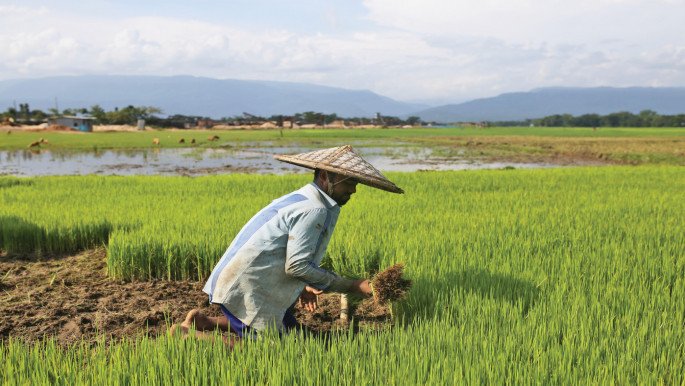Bangladesh News Desk: With the Boro season approaching in December, three government-owned urea fertiliser factories that had been shuttered in phases since mid-2022 due to gas shortages have resumed operations, alleviating fears of a looming urea crisis.
A decline in gas demand for power generation during the winter season has allowed for the redirection of gas supplies to fertiliser factories, industries ministry sources said.
In addition, the prime minister has issued a directive to prioritise gas allocation to fertiliser production to ensure adequate supply of urea in the Boro season.
The Bangladesh Chemical Industries Corporation (BCIC) currently manages four operational urea fertiliser plants – Shahjalal Fertiliser Company Ltd, Jamuna Fertiliser Company Ltd, Chittagong Urea Fertiliser Ltd, and Ashuganj Fertiliser and Chemical Company Ltd.
Three of these factories – Jamuna, Chittagong and Ashuganj – were closed.
Saidur Rahman, chairman of BCIC, told The Business Standard, “With all four of our factories now operational, we are confident in securing a stable urea supply for the upcoming Boro season.
“During the factory closures, we explored alternative measures, such as increasing urea imports, to ensure adequate supply.”
He said the additional strain on imports will now be reduced.
According to the BCIC, at least 189mmcf (million cubic feet) of gas is required a day to run its four plants continuously.
Petrobangla had been supplying 250mmcf of gas to the fertiliser factories until mid-2022. However, due to gas shortages, the supply was drastically reduced to 130mmcf per day starting in June 2022, compelling the BCIC to gradually shut down its factories.
The Chittagong plant was closed in November 2022, followed by the Ashuganj plant in April this year. The Jamuna plant was closed in September, and the gas supplied to this plant was diverted to power up a newly built Ghorashal Palash factory in Narsingdi, the largest of its kind in Southeast Asia.
The closure of three urea factories cast a shadow of uncertainty over the BCIC’s 10 lakh tonne urea production target for this fiscal year.
Bangladesh has an annual urea demand of 26-27 lakh tonnes. Currently, local factories produce about 10 lakh tonnes, and the rest is imported to meet demand.
However, the Ghorashal Palash plant which was inaugurated on 12 November and is currently undergoing trial production, is expected to substantially reduce the country’s fertiliser import dependency. The plant has an annual production capacity of 9.24 lakh tonnes of urea.
With the Ghorashal Palash plant still undergoing trial production, the BCIC had to take urgent measures to reopen the non-running factories in order to meet the substantial 13 lakh tonne urea demand projected for the upcoming Boro season.
Following the closure of the Jamuna factory on 6 September, the BCIC penned a letter to the Industries Ministry, requesting an adequate gas supply to facilitate the resumption of operations at the shuttered factories.
In its letter, the BCIC expressed concern that if at least two of the closed factories are not restarted promptly, there is a significant risk of a urea fertiliser shortage during the upcoming Boro season beginning in December.
The Boro season, spanning from December to March, represents the peak cropping period, yielding over two crore tonnes of rice annually. This bountiful harvest plays a pivotal role in ensuring the nation’s food security throughout the year.
Hartal, blockades disrupt urea supply
While the reopening of all fertiliser factories has alleviated the immediate threat of a urea shortage, the ongoing political unrest has introduced a new challenge to fertiliser distribution.
Strikes and blockades organised by opposition parties are disrupting the movement of fertiliser across the country, raising concerns about potential supply disruptions.
Transport contractors estimate that during the peak Boro season, an average of 18,000 to 20,000 tonnes of fertiliser are transported daily to warehouses across the country, requiring approximately 900 to 1,000 trucks.
However, due to the ongoing blockades, the required number of trucks is not available, causing disruptions in fertiliser distribution. Transport operators are understandably hesitant to operate their trucks due to the associated risks.
The BCIC expresses concern that these disruptions could hinder agricultural production and potentially create a food security crisis in the country.
The BCIC has proactively addressed the transportation disruptions by issuing separate letters to the Public Security Division of the Ministry of Home Affairs, the Ministry of Agriculture, and Deputy Commissioners and Superintendents of Police (DC-SPs) across the country.
In these letters, the BCIC urged the concerned authorities to provide the necessary assistance in ensuring uninterrupted fertiliser supply during the ongoing strikes and blockades.

